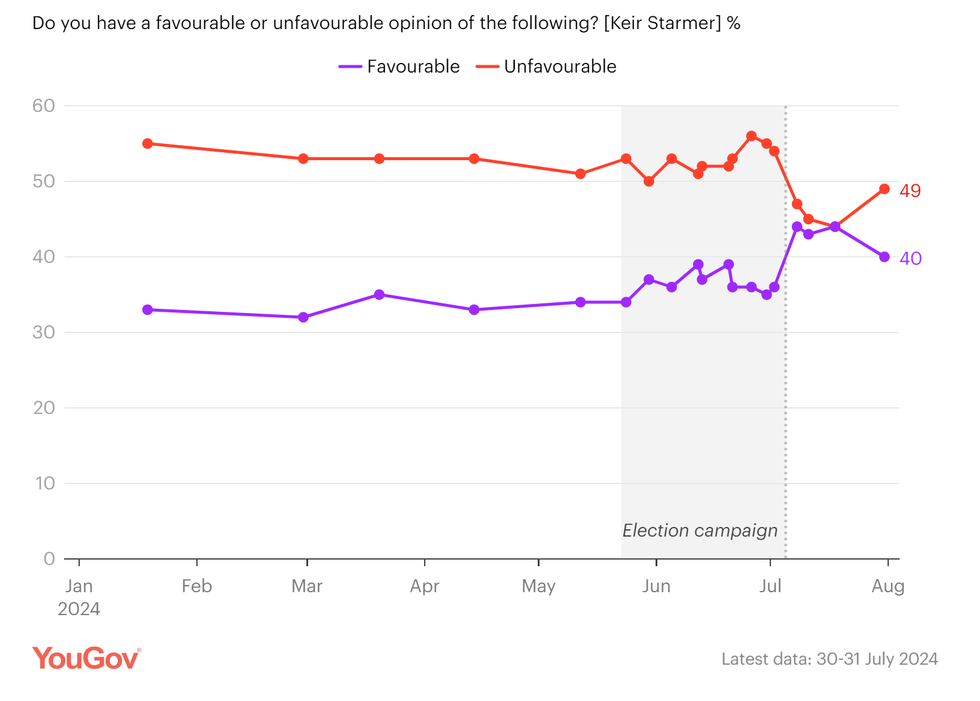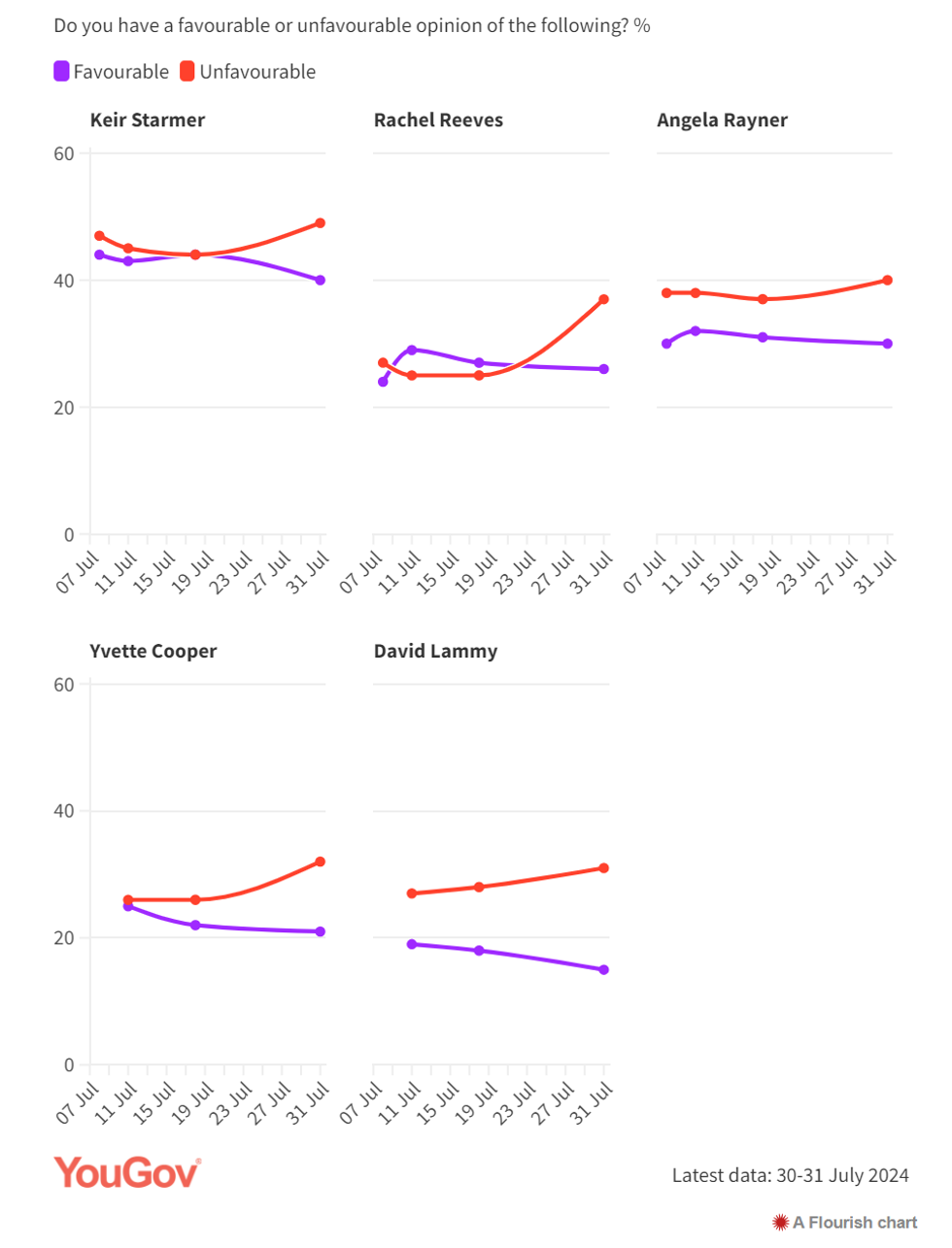Keir Starmer SHOCK rating shows EXACTLY why PM needs to listen to the British people
Keir Starmer has seen a drop in popularity since becoming the prime minister in July
Several prominent Labour figures have seen a decline in popularity since the 2024 General Election
Don't Miss
Most Read
Trending on GB News
Prime Minister Keir Starmer's net favourability rating has dropped since the 2024 General Election as the new government grapples with increased social tensions across the country.
Initially, Starmer saw an increase in his favourability rating immediately following the general election on July 4.
The Prime Minister saw an eight-point increase in the number of Britons with a positive view of Starmer before the election, to 44 per cent on July 5 to 8.
However, according to a YouGov poll, four in ten Britons (40 per cent) now say they have a favourable opinion of the prime minister, down four points from the previous survey on July 17 to 18.

This graph shows Keir Starmer's popularity figures have started to recede although they are still better than his pre-election ratings
YouGov
Meanwhile, 49 per cent say they have an unfavourable view, up five points.
This means that Starmer has fallen from a net favourability rating of ±0 two weeks ago - his highest post-election score - to -9 now.
Nevertheless, these ratings are still higher than his pre-election ratings where he scored -18 in the final poll two days before voting day.
In another poll by Opinium, the results slightly differ but continue to show Starmer's approval rating has taken a dip.
Some 35 per cent approve of Starmer as prime minister compared to 32 per cent who disapprove giving him a net rating of +3 per cent, compared to +19 per cent a fortnight ago.
Starmer's drop in favourability comes at the hand of Labour voters as the majority who backed the party now have a 79 per cent favourability rating, an eight-point drop since the election.
Over the same time period, negative views toward the new prime minister from Labour voters has increased five points to 15 per cent.
In contrast, Conservative voters are actually more likely to have a favourable opinion of Starmer with one in six (18 per cent) holding a positive view, which is up seven points since the election.
However, 78 per cent still hold a negative view of the prime minister.
The results have followed a challenging first month for the new prime minister with the stabbings of three children in Southport resulting in widespread riots spreading across the country and speculation that the prime minister would go ahead with his family holiday.
There has also been a rebellion over the two-child benefit cap within Starmer's party and spending cuts to plug a £22bn hole in public finances.
Starmer has faced criticism for his "faltering" response to the riots in the UK by Reform UK leader Nigel Farage.
Farage said in a post on X: "In the short term, we will quell the riots, but deeper longer-term problems remain. Ever since the soft-policing of the Black Lives Matter protests, the impression of two-tier policing has become widespread.
"The Prime Minister's faltering attempts to address the current crisis have only added to that sense of injustice."
Other key Labour figures have also seen their popularity decline since the days following the general election, especially Rachel Reeves.
Following the Chancellor's announcement of a series of cuts, notably the controversial scrapping of winter fuel payments for pensioners not on benefits, Reeves' popularity rating has taken a noticeable hit.

These graphs show leading Labour figures including Rachel Reeves and Angela Rayner have experienced a rise in unpopularity
YouGov
LATEST OPINION:
The portion of the public with an unfavourable view of the Chancellor has risen twelve points to 37 per cent since mid-July.
However, the number of Britons with a favourable view of Reeves remains largely unchanged (a one point decline to 26 per cent) suggesting that this increase in unpopularity came from people who previously did not know her or hold an opinion of her.
Elsewhere, the new home secretary Yvette Cooper has seen an increase in negative sentiment from 26 per cent in mid-July to 32 per cent.
But like Reeves, those with a positive view of Cooper have remained effectively unchanged, down one point to 21 per cent.
Foreign secretary David Lammy has also seen an increase in unfavorability up three points to 31 per cent and deputy prime minister Angela Rayner saw a shift in negativity up three points to 40 per cent.







